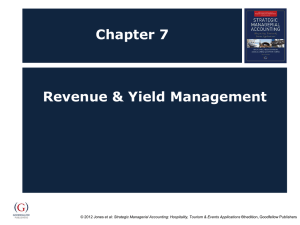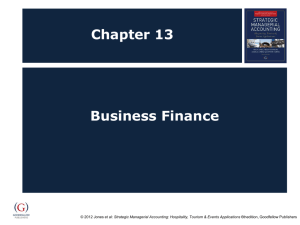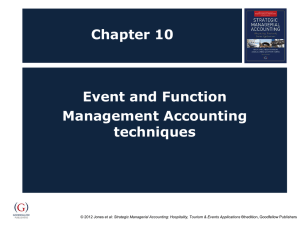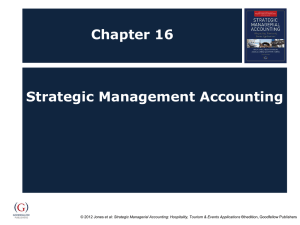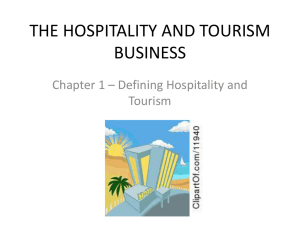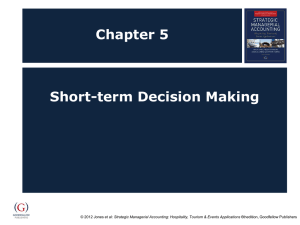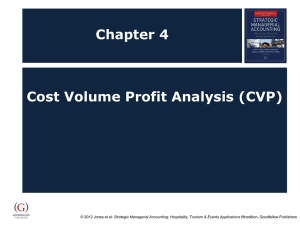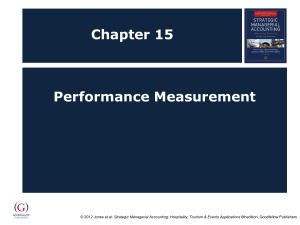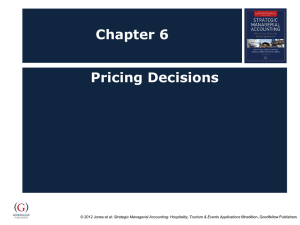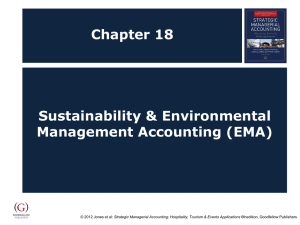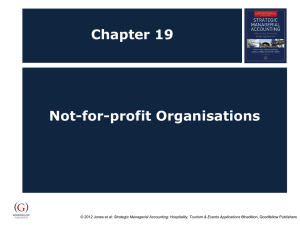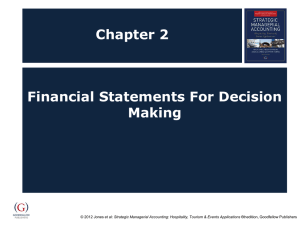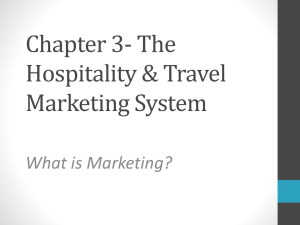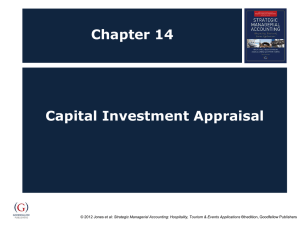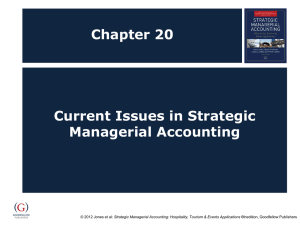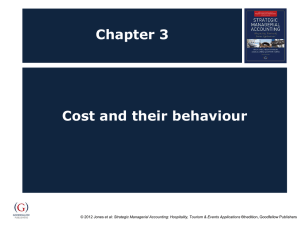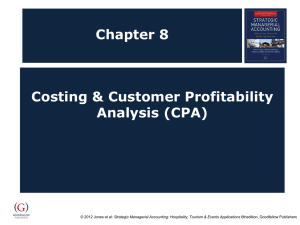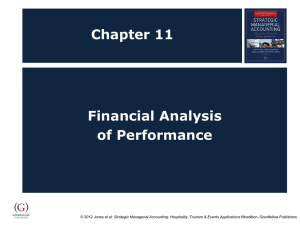Chapter 1 - Goodfellow Publishers
advertisement
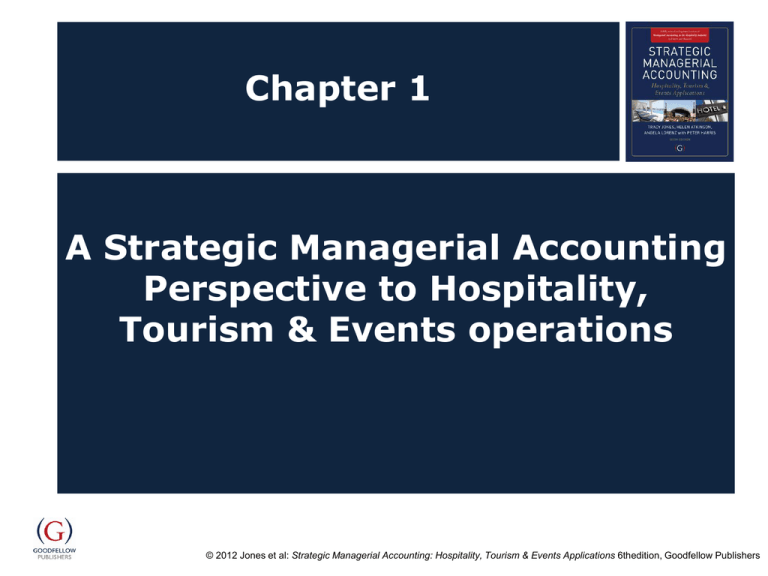
Chapter 1 A Strategic Managerial Accounting Perspective to Hospitality, Tourism & Events operations © 2012 Jones et al: Strategic Managerial Accounting: Hospitality, Tourism & Events Applications 6thedition, Goodfellow Publishers Objectives After studying this topic you should be able to: Understand the difference between managerial and other forms of accounting; Explain the main characteristics and feature of the hospitality, tourism and events businesses and their implication for accounting; Reflect on the way managers can utilise strategic management accounting information to aid planning, control and decision making. © 2012 Jones et al: Strategic Managerial Accounting: Hospitality, Tourism & Events Applications 6thedition, Goodfellow Publishers The differences between financial and management accounting Financial Accounting External to organisation, including Shareholders, Lenders, Suppliers, Regulatory Authorities, Government, Employees, Customers Reporting for Accountability and Corporate Governance purposes. Historically focused, recording what has happened. Management Accounting Internal to organisation, including Managers at all levels Frequency Annual - Routine Level of reporting Whole organisation, plus some limited reporting of different segments of business Type of data Focus of reporting Regulation Financial data and compliance data Accurate and verifiable (audited) Regulated by General Accepted Accounting Principles (GAAP), rules established in international financial reporting standards (IFRS) and specific International Accounting Standards (IAS) Monthly, weekly, daily, either routine and non–routine reporting (ad hoc) Multiple levels – unit/venue level, product or service level, departmental level, by customer, geographic region or whole organisation as required Financial and non-financial data Timely and useful, to aid managers No regulation, or requirement to use Users Purpose Decision Support - information designed to be used by non- accountants to aid them in decision making. Forward focused, using financial information to aid the future of the operation. © 2012 Jones et al: Strategic Managerial Accounting: Hospitality, Tourism & Events Applications 6thedition, Goodfellow Publishers Hospitality , Tourism and Events interaction Strategic Management accounting: extends management accounting as it is externally focused (market & competition) and extends from using financial data to incorporate nonfinancial data and is strategic in focus. Strategic management accounting is an accounting discipline. Strategic managerial accounting is the use by managers of strategic management accounting to support their decision making in a competitive environment. © 2012 Jones et al: Strategic Managerial Accounting: Hospitality, Tourism & Events Applications 6thedition, Goodfellow Publishers Hospitality , Tourism and Events interaction Staying within a local hotel for the event is hospitality Running the event is event management Travel agent booking' transport, event tickets, and hotel is tourism The combination of hospitality, tourism and events Attending an international sporting event © 2012 Jones et al: Strategic Managerial Accounting: Hospitality, Tourism & Events Applications 6thedition, Goodfellow Publishers Customer provision combinations in hospitality, tourism and events Hospitality Tourism Events Hospitality Tourism Events Contract catering Hotel accommodation as part of a tour package A wedding, including the provision of specialist catering services A water sports business at a tourist resort A charity international trek event The booking of holidays to international sporting events Running a local civic event (that does not include hospitality provision) A business tourist, booking his hotel through a travel agent Provision of accommodation for those that attend a trade show / exhibition © 2012 Jones et al: Strategic Managerial Accounting: Hospitality, Tourism & Events Applications 6thedition, Goodfellow Publishers Characteristics of hospitality, tourism, & events Fixed capacity Changeable demand Perishability Range of products and services offered Concurrent production and consumption A real time activity Business size Nature of labour Location implications Capital intensive Operating cost structure © 2012 Jones et al: Strategic Managerial Accounting: Hospitality, Tourism & Events Applications 6thedition, Goodfellow Publishers Summary Accounting and finance is split into three key areas (Financial accounting, Management accounting and Financial management). Management accounting provides managers with information to aid decision making. Strategic managerial accounting is the management use of a range of financial and non-financial data, with an external perspective for strategic decision making. The nature of hospitality, tourism and events provides a number of key characteristics that impact on appropriate managerial accounting techniques that are useful. © 2012 Jones et al: Strategic Managerial Accounting: Hospitality, Tourism & Events Applications 6thedition, Goodfellow Publishers
